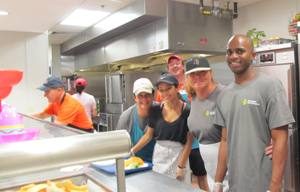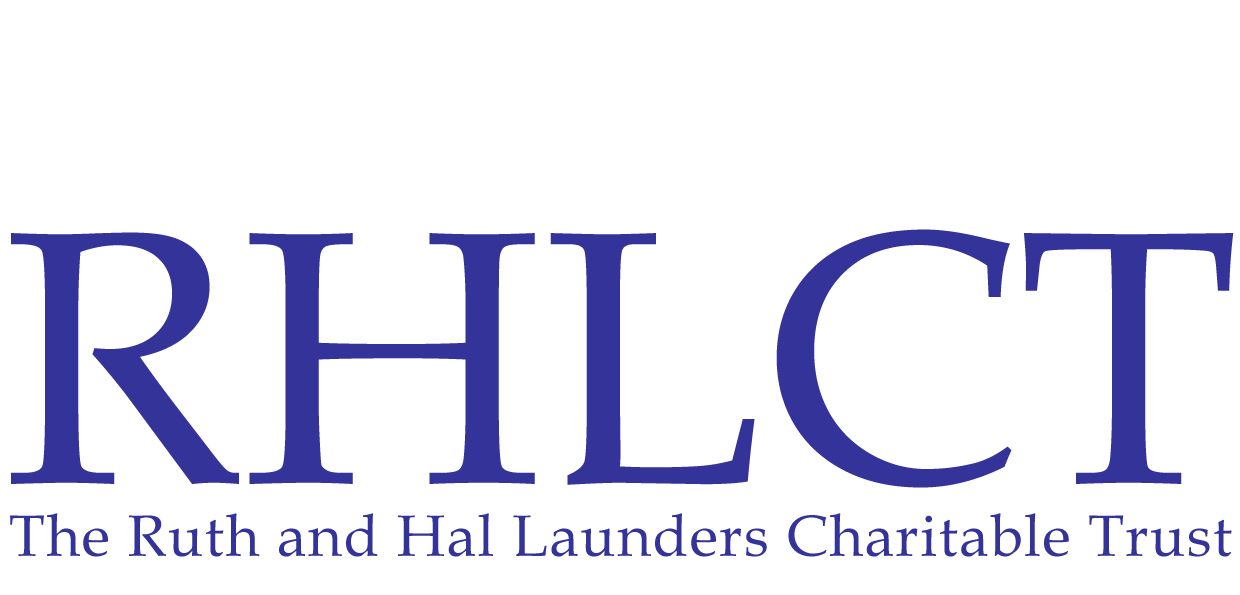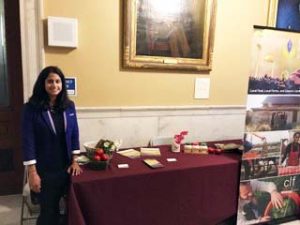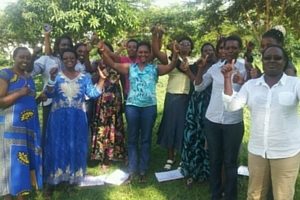
Volunteers in the Kitchen at Boca Helping Hands, Boca Raton, FL
Every day at 10:30, a line forms up outside the Food Center at Boca Helping Hands. They wait for 11:00 A.M. when “lunch is served”. And day after day, 175 to 200 people stand in that line, waiting their turn to receive a delicious, hot lunch, lovingly served by the BHH Volunteers. Sadly, this scene is played out in soup kitchens, community centers, churches and synagogues all across America. Hungry people need to be fed. And someone needs to do something about it. We need more programs, more food stamps, more, more, more. But is the “more” working? Are we, in fact, actually solving the hunger and poverty problem in America? Might there not be a better way?
In 2013, Boca Helping Hands launched the first of its job training programs. Following the initial success of our Hospitality Job Training Program, we have added programs to train our clients as Home Health Aides, Commercial Truck Drivers, or IT Support Staff. Today, over 150 people a year are preparing for new careers…careers that will elevate them out of poverty and more importantly out of the daily food line.
At a basic level, we know that getting a client a job is a long term solution to their personal struggle with hunger and poverty. But a “job” means so much more than a paycheck. Ron Haskins, Senior Fellow for economic studies and co-director of the Center on Children and Families at the Brookings Institute has written: “Work is more than just a means of income generation. Work also provides adults and their families with a time structure, a source of status and identity, a means of participating in a collective purpose, and opportunity for social engagement outside family life. “
At Boca Helping Hands, we have long agreed with the above sentiment. We agree because we see the results of joblessness every day. Again I quote Mr. Haskins: “A host of studies have connected joblessness to increased risk of family destabilization, suicide, alcohol abuse and disease incidence as well as reduced life span.” We don’t necessarily agree with this last quote because of any academic research. We agree because we see those standing in line day after day…waiting for 11:00… We agree because we see what happens to a family, a neighborhood, and indeed an entire community when unemployment rates increase.
And so we at Boca Helping Hands have found that the best way to fight hunger and poverty while simultaneously building stronger communities is to get people working again. Thanks to the vision and generosity of the Ruth and Hal Launders Charitable Trust, Boca Helping Hands is fulfilling both of these missions. The recently dedicated Justin D. Webb Center will house all of our education programs. In the two classrooms of the Justin D. Webb Center, clients will take their first steps to a life free of any charitable or governmental assistance. They will develop their professional skills, and learn healthy life-style habits. They will learn about proper nutrition to combat the diseases that are near epidemic levels in the low income neighborhoods (Type II Diabetes, Cancer, Coronary Disease, and Hypertension). And they will gain needed computer skills, language skills, reading skills, interview skills that will help them secure a job leading to self-sufficiency.
In cities across America, neighborhoods are in decay. Lines form up every day at the local soup kitchen. There are only three options: (1) We can ignore the problem and hope it goes away; (2) We continue to throw enormous sums of money into simply meeting the immediate need for food; or (3) We can take the long term approach…and take each client by the hand and lead them across the bridge from basic human need to self-sufficiency. Option #3 is very much part of the mission of The Ruth and Hal Launder’s Charitable Trust. The RHLCT acts as a catalyst for vulnerable people and their support systems…a catalyst that moves people from basic human need to independence. At Boca Helping Hands, we are in full accord with the mission of the Ruth and Hal Launder’s Charitable Trust and choose Option #3. Education, wellness programs and job training are the only long term solutions. A working population will solve its hunger and poverty problem. A working population will build stronger communities. And a working population will never again have to line up every day at 10:30, just to get a hot meal…
Contributed by Guest Author: James S. Gavrilos – Executive Director of Boca Helping Hands Born in Hammond, Indiana, James Gavrilos graduated as valedictorian from Hellenic College in 1986, and received his Master of Divinity, again graduating Valedictorian, from Holy Cross School of Theology in 1989. After a brief stint as the Assistant Director of Youth Ministry for the Greek Orthodox Archdiocese of North and South America, he entered parish ministry, where he would serve for the next 16 years. In 2006, James became Director of Development for The Haven. In 2007, he accepted the position of President/ CEO of Junior Achievement of the Palm Beaches. In 2010, James Gavrilos became Executive Director of Boca Helping Hands. During his tenure, Boca Helping Hands has experienced a period of unprecedented growth.








Recent Comments